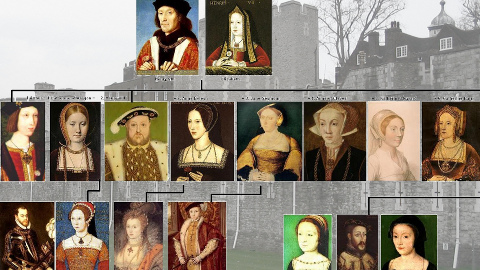When discussing copyright, things are not as simple as strengthening or weakening copyright, unless you also specify for whom.
There are three parties involved in copyright. It is quite possible to share 98% of the problem description, like the Pirate Party does with the Association of Reporters (journalistförbundet), and yet arrive at vastly different conclusions: “weaken copyright” and “strengthen copyright”, respectively. How is this possible?
The reason is that there are three parties involved in copyright, and the relevant outcome is their relative strengths to each other. The Pirate Party wants to weaken copyright for publishers, whereas the Association of Reporters wants to strengthen copyright for writers. Both paths of action would make writers stronger in their relation to publishers.
Let’s start at the beginning:
When copyright was conceived in 1557, it was a censorship mechanism, pure and simple. Parliament let it expire in 1695, and was set under heavy lobbying to reinstate it. Not by writers, but by publishers.
This is one of copyright’s best kept lies: it was never for authors in the first place, but for the printers, publishers and distributors. The printers gathered their families on the stairs of British Parliament and basically begged for the monopoly to be reinstated, which it was in 1709.
An important point here is that nobody claimed that people wouldn’t write books without copyright. The argument was that no distributor would print books without copyright. That’s an immense difference, and it shows how copyright was created specifically for printers and distributors. In the words of Karl Fogel, this is the smoking gun of problems with copyright legislation — it is copyright in its unspun form.
Fast forward 100 years, and the balance of power between publishers and writers had become terribly lopsided. Enter Victor Hugo, who — through some fancy footwork — introduces writers’ rights into the continental copyright to balance publishers’ rights, especially in the droits morals, the noncommercial non-transferable rights.
The third party in copyright is the public, whose right of ownership is limited by the monopoly powers mostly held by the publishers.
So in order to discuss copyright in a meaningful context, it becomes important to discuss whose rights are important or problematic:
- The clearinghouses, particularly publishers. These are the ones who lobbied for 1709-style copyright in the first place, and are now reduced to bit shufflers and keeping imaginary value on the books. This bullet point also includes collecting societies, who benefit greatly from being able to tax the public for any use of work even from non-identitified or non-affiliated artists.
- The artists and creators, who are constantly trying to get their rights against (and money from) the publishers and clearinghouses. Copyright was never made for them, but they have been given some legislative breadcrumbs lately to balance the immense power of the publishers and clearinghouses.
- The public, whose access to culture and knowledge is limited by the copyright legislation, and whose rights of ownership are limited by the monopoly. The public is also the only legitimate stakeholder in this legislation. More on that in a later post.
Among these three parties, the clearinghouses have been given all the cards, and yet, they are the least important for culture. The argument that nobody would print books without copyright should have no bearing on today’s legislation, as nothing needs to be printed for culture and knowledge to be disseminated today.
It is not unreasonable in the slightest to work politically for the clearinghouses’ rights to be weakened in relation to those of the artist. This is a view we share with everybody but the copyright industry, and this is why we are in agreement with the Association of Reporters (and others) on everything but the conclusion of the specific legislative wording that needs to change.







That’s a good description of the practical situation. However in theory I think it should look like this: in the case of copyright (the economical rights) there is only one party – the public. Other parties needs to be taken into consideration too of course, but only in as much as they affect the outcome that is in the public interest. In the case of authors rights there are two parties: the author and the public, because there is a balance between personal rights and the interest of the public in that case.
The reason that the interest of the public is not taken into account more I guess is a problem of collective action.
Btw. some time ago I read something that I found thought provoking. In Sweden we have, as you know, the “allemansrätt” which grants everyone the right to among other things wander freely – also on other people property (as in forests and fields – not gardens of course). Perhaps a bit infected by the prevalent thinking of our time I regarded this as a restriction on private property (supporting it despite that because of the overall good it does). However, in an interesting article (can’t find the link now) it was pointed out that actually private property limits people’s freedom of movement. And when you take some time to consider this, who is really to say which right is the more fundamental of those two as long as straying around does not do any significant harm upon someone else?
I think this can be compared to how the perspective has gradually shifted in such a way that the public’s enjoyment of culture is no longer a starting point for many people when they think about these issues. I think that’s a problem.
One doesn’t necessarily have to do away with copyright, but imposing a time limit is a given as I see it (the up to 130-150 years of protection of today is practically speaking almost the same as no limit at all).
I was about to write an answer to this on basically the same premises as Tor.
In copyright there is only one party. The public. All other are only of interest in as much the public has a desire to try to affect their behaviour. A balanced copyright could actually be a very good system for doing that. We, the public, give up a little freedom to bye us an increased production of things we want. It’s really up to the public to decide the price for the product. If there are no sellers, we do without. To unilaterally give more to the seller than is absolutely necessary would actually be illegal in any other situation. Could you imagine a municipe paying double the price to a contractor?
I agree with @Mumfi and @Tor that the public is the only legitimate stakeholder in the wording of the copyright legislation, and will be returning to this in a later post.
This is most easily observed in the wording of the American constitution, that congress has the right to award limited monopolies “to promote the progress of sciences and the useful arts”. It becomes crystal clear in those words that the real intended beneficiary is the public, and the monopoly is merely a means to benefit the public, although a private individual receives the monopoly.
We need to go back to that kind of thinking, and stop legislators from confusing the end (benefiting public) with the means (awarding monopoly).
Rick, to be honest I don’t follow all of your rationale, but the last phrase of your comment (slightly edited, if you don’t mind): “We need to… stop… confusing the end (benefiting public) with the means (awarding monopoly)” is brilliant. I understand that stated goal in the US Constitution–“To promote the Progress of Science and useful Arts” cannot be achieved by wrong means–“exclusive Right to … Writings and Discoveries.” I wrote a book on the subject (please have a look at: http://cvc.culturedialogue.org/wordpress/the-book/) and am happy to find someone thinking along these lines.
This all assumes that one takes an utilitarian approach to copyright however. I think one has to distinguish between copyright and authors rights. As I see it the only sensible and coherent way of viewing copyright (the economical side) is as a utilitarian construct. I seem to remember that you Rick held a speech at some conference in the UK to that effect (that copyright is the way that the public pays in our current regime). Authors rights are more of a personal negatively defined right. However I think the importance of these rights are often overstated. The social norms are so strong that I feel that a legal foundation for authors rights is seldom needed.
In any case I think one needs to realize that not everyone believes copyright is a utilitarian construct and in those cases one needs to take that into account and start by attacking the notion that it could be anything else rather than just assuming this. Otherwise there is a real risk of the discussion getting stuck.
@Tor. I think it’s necessary to distinguish between legal rights as they are and ideal rights as they must be. In US copyright is legal one automatically assigned to an author. There are two problems with it, which put this concept on collision course with culture. First, it restricts free communication of a creative work with public. Second, it is salable. Both features are against very nature of a cultural phenomenon and thus copyrights have caused only damage while never had proven positive impact on culture, industry, education, markets. Just few words regarding the ideal: an author doesn’t need any special rights to sell his work, a publisher doesn’t need any monopoly to conduct his business, but they both deserve attribution which works for the name and thus turns their work into money–like in any other trade.
#Tor
I agree that utilitarianism is a belief among others.
However, utilitarianism – the acknowledgment of reason as the ultimate judge in societal affairs – is the only principle that makes *freedom* of beliefs (religion) possible.
Or at least the belief that, applied as norm, maximizes freedom of belief… 😉
@Viktualiebrodern
Maybe we’re digressing a bit here, but if you feel like it please elaborate on why you think utilitarianism is the only principle that makes freedom of beliefs possible.
Btw. one doesn’t need to be an adherer of utilitarianism to be able to identify copyright as utilitaristic.
Oh, there you put me to the test. I am not myself clear on this yet. But a quote from John Rawls “A Theory of Justice”, paragraph 34 (at the end) might interest you
“For when the denial of liberty is justified by an appeal to public order as evidenced by common sense, it is always possible to urge that the limits have been drawn incorrectly, that experience does not in fact justify the restriction.
Where the suppression of liberty is based upon theological principles or matters of faith, no argument is possible.”
[…] […]
[…] want to address one idea from There Are Three Parties To Copyright by Rick Falkvinge. He writes: “The argument that nobody would print books without copyright […]
[…] as well, unfortunately impoverishing the public further. (It is important here to remember that there are three parties to the copyright conflict: creators, publishers, and the public. Ironically, the public is the only […]